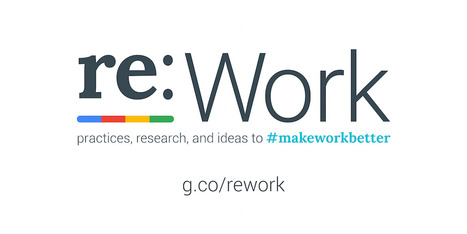After years of study, Google uses a few simple questions to identify the company's best leaders.
Research and publish the best content.
Get Started for FREE
Sign up with Facebook Sign up with X
I don't have a Facebook or a X account
Already have an account: Login
 Your new post is loading... Your new post is loading...
 Your new post is loading... Your new post is loading...
|
|













'The best managers are those who help their teams succeed'.
Google identified the key beahviours of its best leaders. Then Google began asking team members to answer 13 questions, only one of which, relates to technical (hard) skills.